How to Live: A Vision Quest, Part One
 04.19.2011
04.19.2011 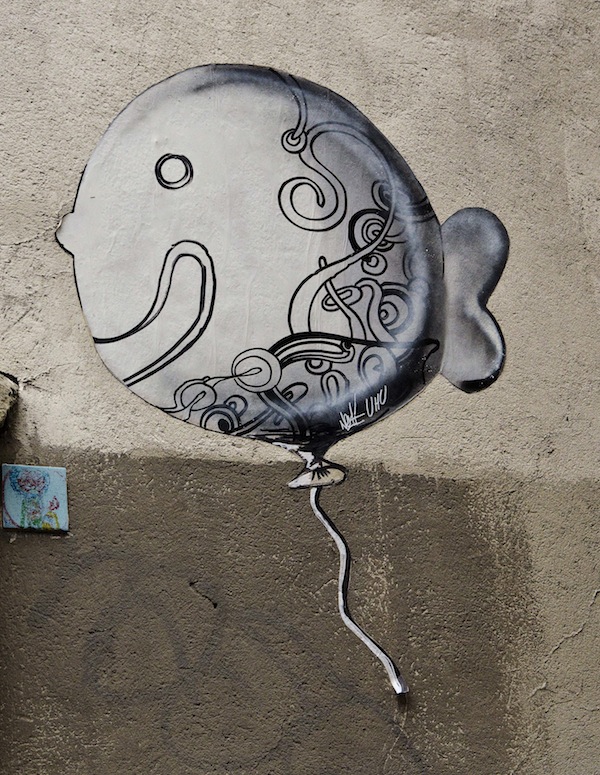
I just finished reading a magnificent book by Sarah Bakewell about Michel de Montaigne: “How to Live; A Life of Montaigne in one question and twenty attempts at an answer.” The book just won the National Book Critics Circle Award for Biography in the United States, and the Duff Cooper Prize for Non-Fiction in the U. K., and rightfully so.
I’m not interested in doing a book review here; I’ll just urge you to read the book, which set me to musing about certain key Greek terms—eudaimonia and ataraxia and prosoche—that engaged Montaigne. The Renaissance writer, who first coined the term essays—Essais, or “Attempts”—was not interested in abstract philosophy. He was interested in the pragmatic philosophies of the ancient Greek Stoics, Epicureans and Sceptics. All had the same aim: to achieve a way of life the Greeks called eudaimonia: joy, happiness, human flourishing. As Bakewell puts it, “This meant living well in every sense; thriving, relishing life, being a good person.”
The ancient Greeks felt that the best path to eudaimonia was ataraxia, or imperturbability, freedom from anxiety. In order to attain this equilibrium, you needed to have control over your emotions.
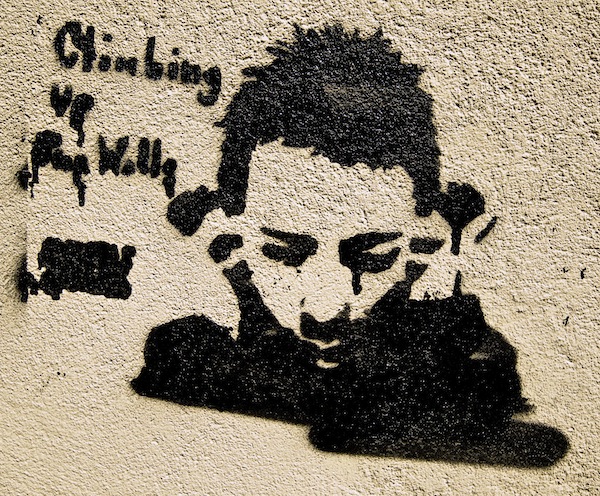
Both Stoics and Epicureans believed that two things, especially, prevented the enjoyment of life: lacking control over your emotions and not paying attention to the present. If people could get those two things right, most other things would fall into place. But getting these right is so difficult that we need to trick ourselves into achieving them.
So the Stoic and Epicurean philosophers spent a good deal of time thinking up tricks to achieve this equanimity.
But this is not a book review. Bakewell prompted a remembrance of my own process of finding a practical philosophy of life. My personal history can only be of interest to you if you can use it yourself, so if you’re that reader, here goes:
Philosophy, even pragmatic philosophy, is intimately linked to one’s spiritual vision.
For some reason, I was born needing a spiritual vision. My parents were atheists, atheists who led an exemplary life of good sense and generosity towards others. I clearly loved and emulated them, but I needed something more. As a young girl, I looked around me to find some spiritual vision that made sense. I adopted the closest one in my community: Christianity. I begged my parents to take me to various churches, Protestant, Episcopalian, Catholic. I wanted to try them all and find one that fit. My parents scratched their heads at this strange child, but my father obliged and dropped me off at one church or another on his way to play tennis every Sunday morning.
I was confirmed in a Presbyterian church. Then, at thirteen, I persuaded them to let me go to an all-girls Episcopalian boarding school by the sea in La Jolla, California. It appealed to several parts of me: the adventurer (the ocean!), the book lover (a rigorous education!) and the spiritual seeker (chapel every day!). Within one year at this school, two of those parts of me were sorely disappointed: there was little adventure in a school so strict that we could only go down to the sea in a group with a chaperone; and by the end of the first year, by age fourteen, I’d lost my religious faith. Religion seemed to be merely a system for controlling behavior.
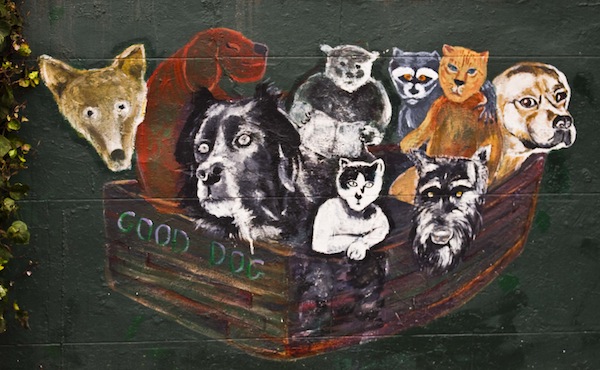
In the middle of my freshman year, the headmistress called me into her office, and said, “We thought you would be a leader, but I’m afraid you turned out to be a leader of rebellion.” (Was that the year a group of us ran down the hall in high heels, naked except for pearl necklaces, singing an aria from some opera (it might have been the "Violetta Aria" from La Traviata), and the dorm mother, peeking out of her room, screamed in horror and reported us? I’ll have to check with my classmates.) A certain group of us boarders were wild ones, and continued to be for our full four years at the school.
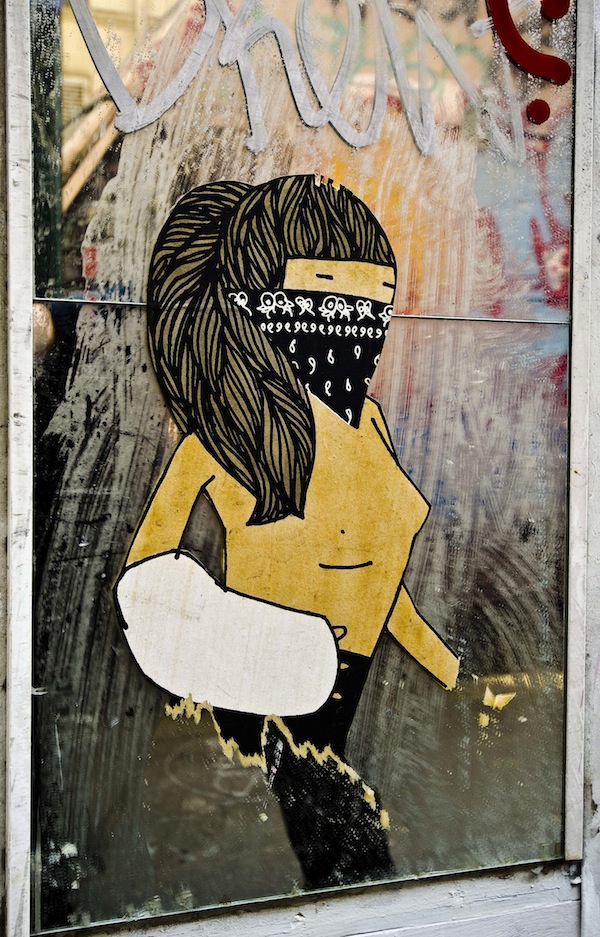
The one sterling aspect of the school was the education. We studied Latin, French, English literature, history and more, in depth, and spent hours every evening in study hall. I edited the school literary magazine, and got in early to the college of my choice.
Sarah Lawrence was a breeze compared to The Bishop’s School for Girls. I had only three courses, French literature, anthropology and psychology. But halfway through the first year, something happened. I froze. I stopped studying. Stopped turning in papers. Simply jumped the rails.
I didn’t know it then, but I was going on strike. If I had no sense of why I was in school, I couldn’t continue. I didn’t know it then, but this was a spiritual crisis.
I dropped out of that college, then spent the next year in Oxford, England studying English literature—a whole year reading Shakespeare!
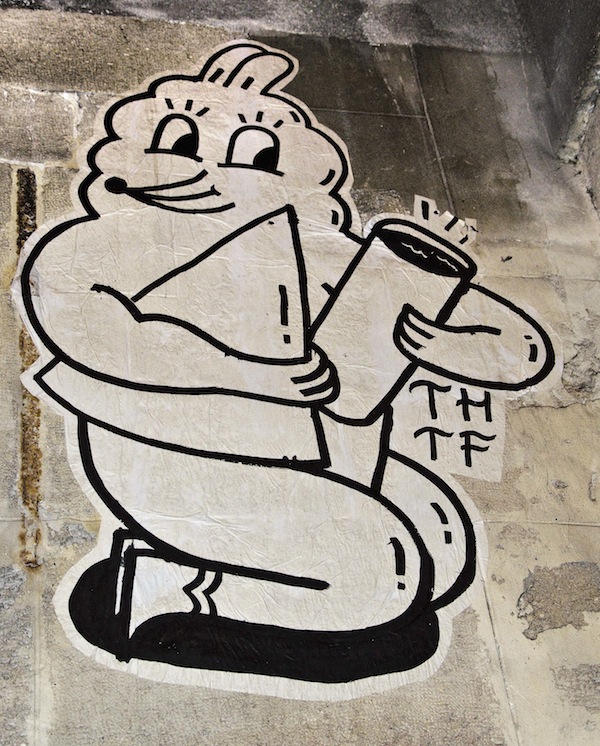
Then, back at home, I spent a year at Arizona State University studying anthropology, philosophy and German. And an eating disorder blossomed.
Then to the University of California at Berkeley for summer school courses in philosophy, Ethics. I read some fascinating stories in Plato, but none of them were relevant to my quest.
Swept up in the radical movement in Berkeley, I began to experiment in alternative ways to live, what we called the counterculture. I lived in a commune, demonstrated for civil rights and student rights and against the war in Vietnam. My friends and I created performance art for one person at a time, whose purpose was to change that person’s life. And it did.
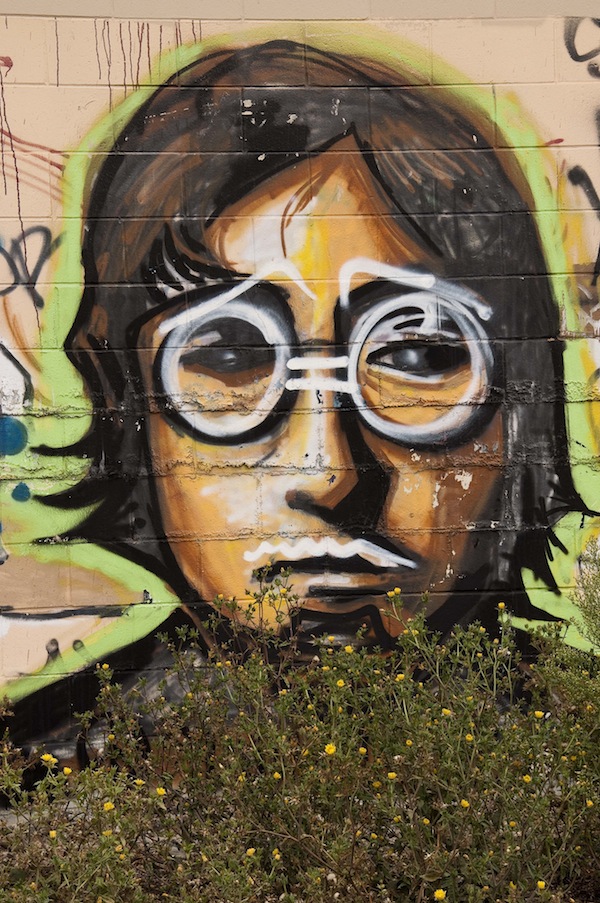
But in my core, I was lost. Luckily, I had my journals, where the real work was going on. I was drilling down to ground zero, trying to sort out all the conflicting desires in me—to find out exactly what/who they were and how they could all live in harmony. For they were all at war, all tugging in different directions, each speaking with his/her own voice.
(End of Part One. Saturday, Part Two.)


Reader Comments (10)
and i love that there is so much street art in paris if i am reading the images accurately.
much love to you.
I read Montaigne too.
Lovely piece on galettes.
Bruce
Thank you! I don't think it was so much that I had "the chance" to do this excavation, as that it was an obsession about which I had no choice. Who knows, maybe this patchwork of essays IS my autobiography.
I so appreciate your kind words.
I'll be sending you material as soon as we get the next piece posted.
Merci!
Kaaren (& Richard)
Dear Lisa,
I hope this next post will have some relevance for you in your "struggle and search." In a way, it's never over, is it. Do you write down your dreams?
The street art is terrific here (as it is in L.A). It seems to have become an international art form--my sister, Jane, just saw some great graffiti in New Zealand.
I so love the bracelet you made me. They should be fighting to hire you.
Love to you,
Kaaren (& Richard)
Brava, Kaaren! . . . looking forward to part two. Don't rush it, please. Hard enough to write like this "for yourself" but very generous and painstaking to permit others to read it . . . A spiritual autobiography--a tradition all its own. Augustine on down . . . or up . . .
I'd love to send Part Two in two months rather than tomorrow, but we promised it now, and we just published it. I think you're right that these two posts are spiritual autobiography. It's hard to write about this process, since it takes place in the inner world and is largely invisible. Thank you for your appreciation and understanding. You are one savvy reader.
Love,
Kaaren (& Richard)
Dear Leader of Rebellion:
Kaaren, it seems even as a youngster you were a leader. I imagine you first as a girl on fire. Then I see a young woman full of "peace' and "love" carrying a torch of another America. Your quest is enchanting, yet the pain is evident, not in any way sensational, or tinged with self pity, but rather a necessity to further your spiritual growth. I also related to your understanding of the distinction between the religious and the spiritual even at a young age. Your vision quest is like your dharma.
Richard, as always thank you for your fine photos.
with love,
Jon
Jon,
Another loving, generous message from you! No, no self-pity or sensationalism because I don't gravitate towards either of those.
I want to hear more from you about the Gurdjieff teachings you learned as a child. That's another example of a spiritual yet not religious philosophy. Your childhood was complex and many-layered and you'll have stories to tell forever.
Love,
Kaaren & Richard, who thanks you for the compliments on his photos.
Dear Bruce,
Is there any such thing as non philosophy? Even the lack of it is a philosophical position, no? Even the belief that life is nothing but practical action, with no interior depth, for instance. But I don't think that was Montaigne's philosophical position. Nietzsche apparently found great inspiration in Montaigne's gay spirit of acceptance of all life, and refusal to regard life as dreary. EVERYTHING is of interest to Montaigne, and that alone is a philosophical stance: life is to be affirmed!
Galettes. We love galettes. If you ever get to Paris, we'll take you to our favorite two spots for galettes.
Love,
Kaaren (& Richard)